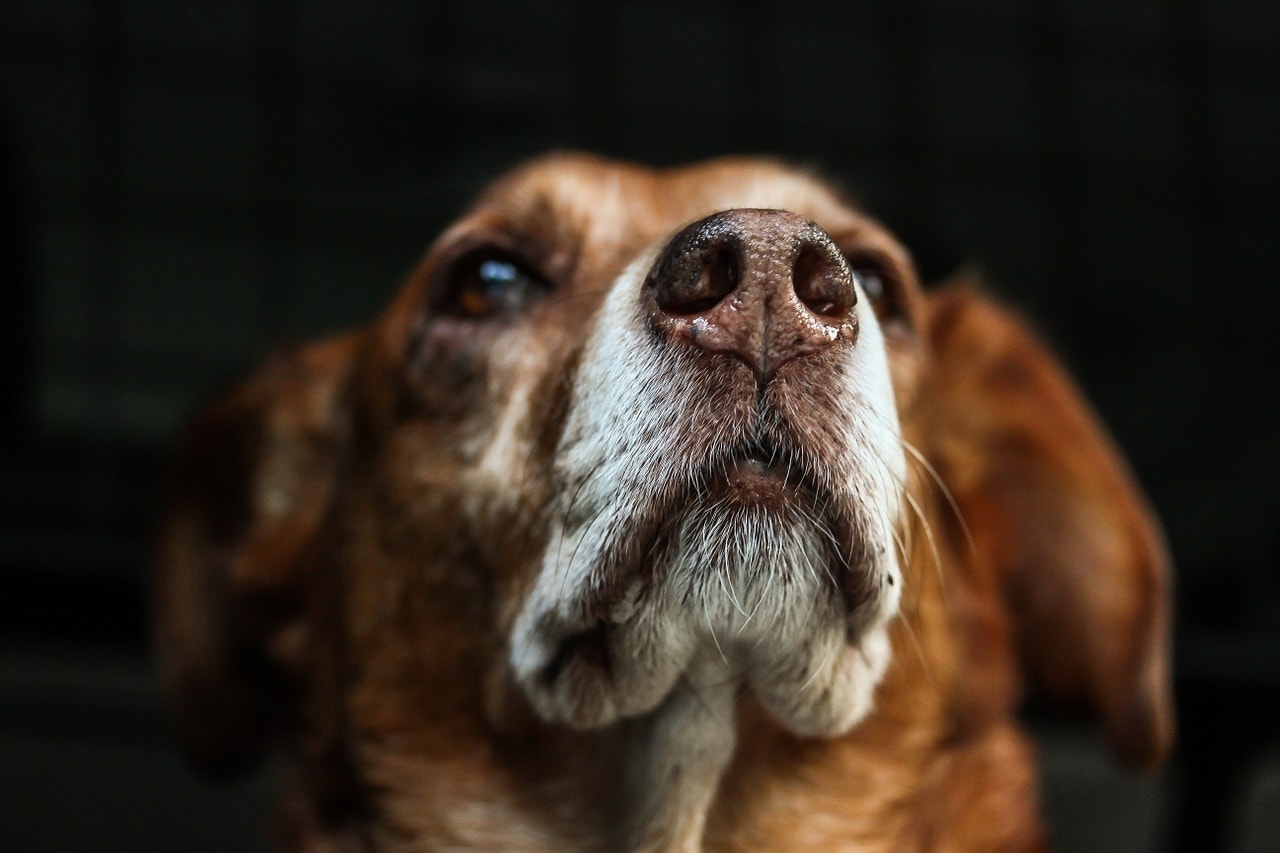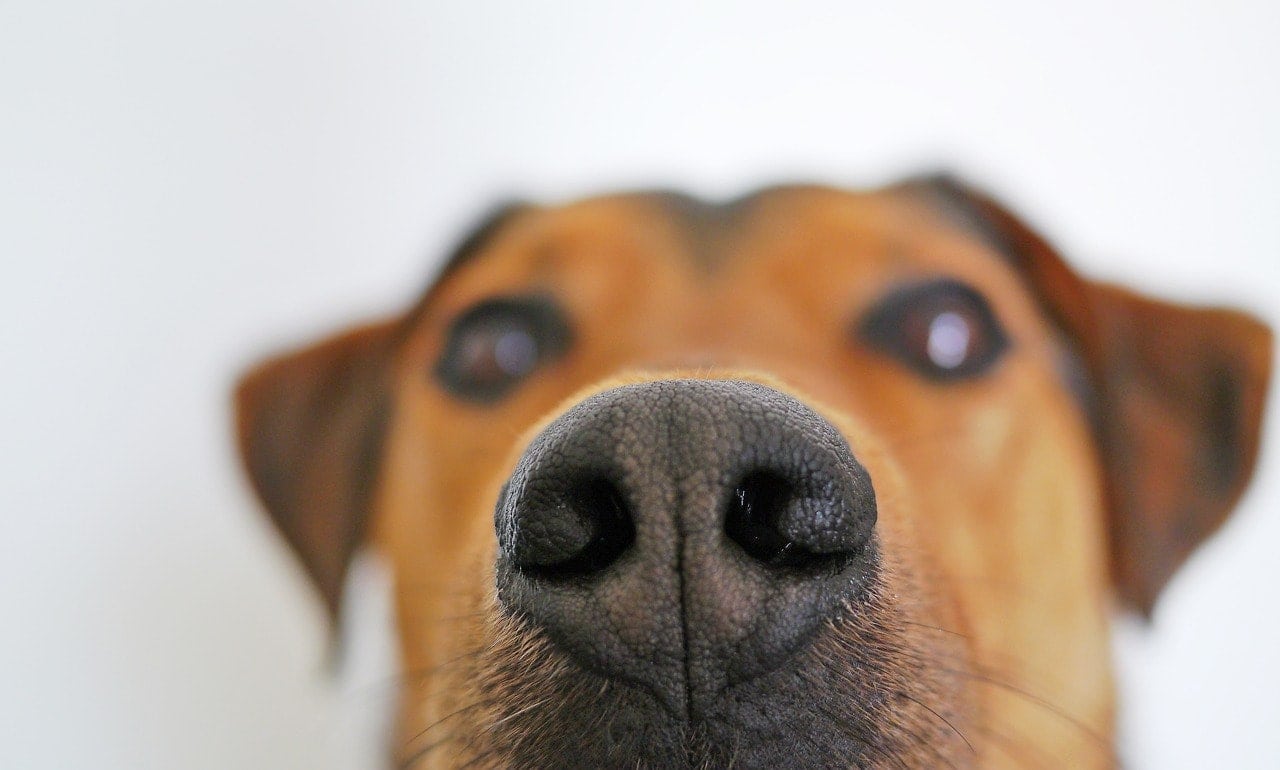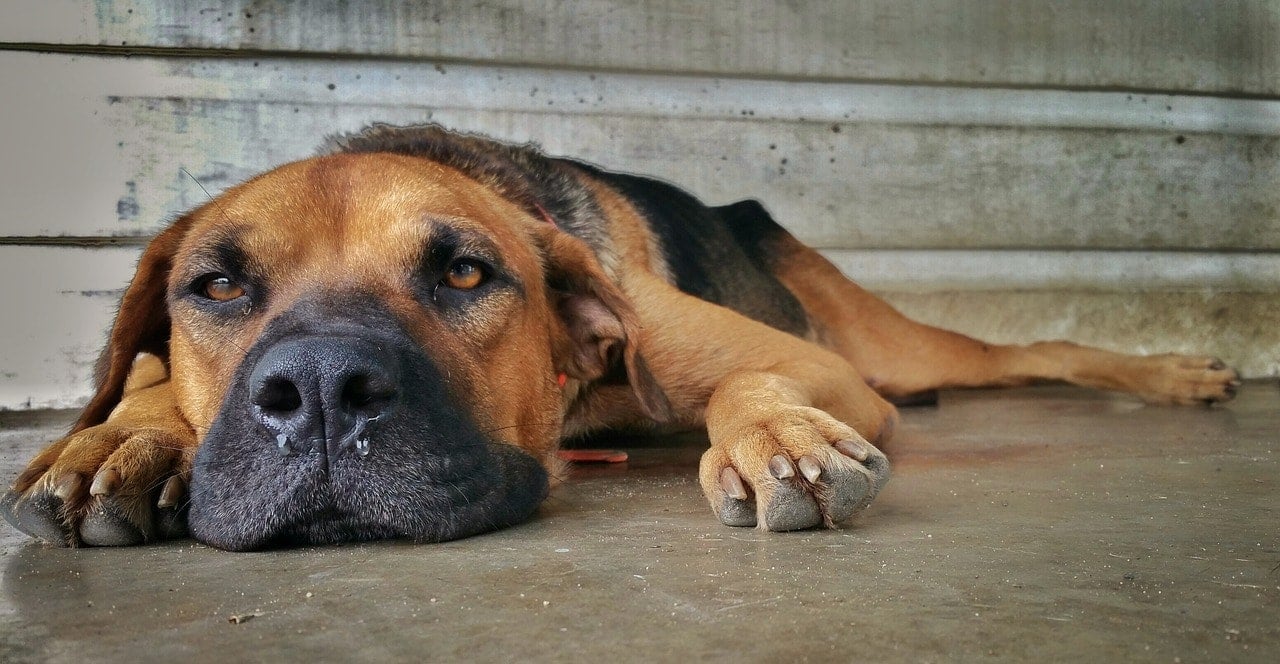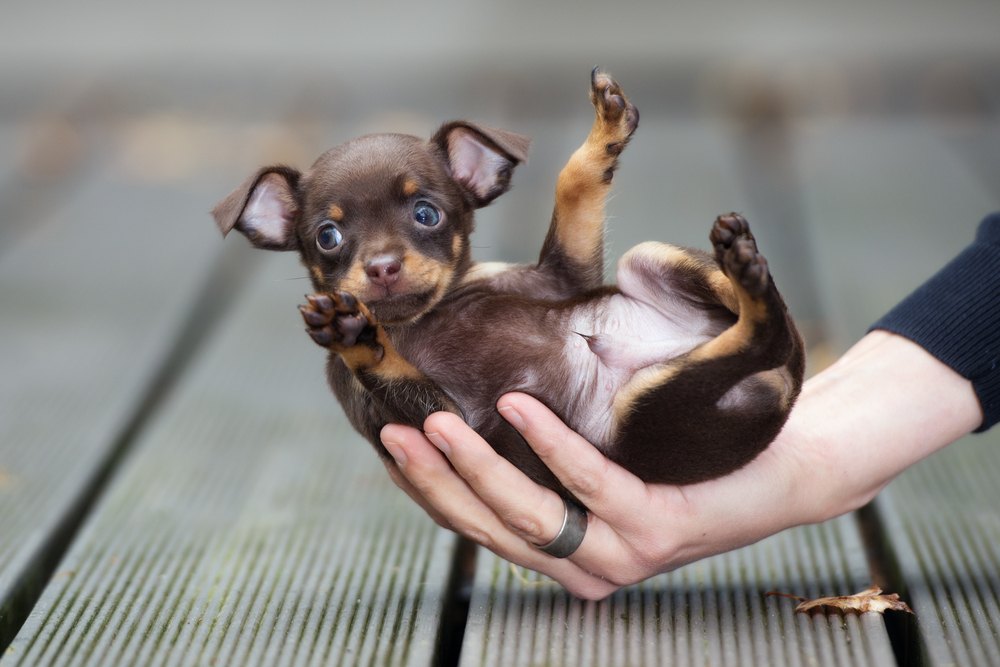Why Are Dogs’ Noses Wet? Vet-Reviewed Facts & Benefits

Updated on

You don’t have to tell anyone in the 69 million American households that have dogs that they are amazing animals. They love us unconditionally and cheer us up when we’re sad. One of the most fascinating things about dogs is their sense of smell or olfaction. It’s evident when you take your pup for a walk that it is a critical part of their lives.
While this sense is also quite important in our world, it’s a canine’s lifeblood. The curious thing is that we share around 84% of our DNA with dogs.1 Yet, they have wet noses and we don’t. A dog’s wet nose helps with their sense of smell because it gathers and traps scent molecules more efficiently.
To understand why this trait is vital to your pooch, it helps to put smell in perspective to learn its importance. Let’s start with fascinating canine anatomy and biology that explains just how unique your best friend is.
Your Dog’s Amazing Nose
Today’s domestic dog shared a common ancestor with the modern-day wolf. The two species split off into their separate ways between 9,000 and 34,000 years ago.2 Nevertheless, both animals were and are predators. Their sense of smell is imperative to them, from locating prey and defining their territory to finding a mate.
The interior of the nasal cavity is lining with a special type of tissue called the olfactory epithelium. That lining contains over 100 million scent receptors. We all know that some scent hounds and working dogs have an especially keen sense of smell, but studies have so far failed to identify the difference in the actual number of olfactory receptors, while instead, they suggest there is a difference in gene expression responsible for sense of smell.
You may also suspect that flat-faced or brachycephalic breeds, like Pugs and French Bulldogs, may have fewer receptors or poorer sense of smell, but research has shown that this will generally be dependent on their individual anatomy and is considered poor in comparison to scent breeds but is generally not much different from other non-scent breeds.
Compare these figures to humans, who have about 5-6 million scent receptors. Cats may have over 200 million, although they generally have 45-80 million. It’s plain to see that cats and dogs have us beat when it comes to the sense of smell.
However, it’s not just about being able to detect scents. It’s also about telling them apart. That’s where a receptor called V1R comes into play. It allows dogs and all mammals to differentiate odors. The more variants you have, the better your detection. People have two and dogs have approximately nine. Score another point for the canines!

The Other Way Dogs Learn About Their World
Many animals, including cats and dogs, have another sensory body structure, called the vomeronasal or Jacobson’s organ. It sits at the base of the nasal cavity and opens up into the mouth just behind the incisors. When you see your pup opening their mouth, curling their lip, or chattering their teeth, they may be putting the Jacobson’s organ to work.
It allows dogs to trap molecules floating in the air, such as the pheromones given off during courtship and mating. The brain can interpret the chemical structure of scents and identify them as attractive and interesting. Scientists now know that the ability to distinguish particular smells is hardwired into animals. All this speaks to the importance of this sense and how dogs evolved to rely on it.
But the question remains, what does a wet nose have to do with it?
Benefits of a Wet Nose
It makes sense that when an animal depends on a particular thing, they may evolve and adapt to use it better. That turns out to be the case with a dog’s wet nose. Scent molecules are minuscule in size. Just like a damp cloth picks up dust better, so does a wet nose gather scent molecules more efficiently.

How Does a Dog Get a Wet Nose?
You don’t have to watch your pup long before you see them licking their nose. The nose secretes mucus just like the noses of other animals and people. A wet nose gives dogs another advantage. Canines sweat primarily through their paws. However, panting and a wet nose can help dissipate heat even faster to help your pup reduce their temperature.
When a Wet Nose Isn’t Good
A wet nose serves a dog well when it comes to smell. However, there are times when it’s a sign that something is wrong with your pup. Presence of a nasal discharge that is thick, colored yellow, green or red, or is one-sided or coming from both nostrils, is a potential sign of a respiratory issue, foreign body, or another problem in the nasal passage.
- Coughing
- Sneezing
- Lethargy
- Retching
- Fever
- Loss of appetite
- Fast breathing
- Difficulty breathing
- Bleeding from the nose
If you notice any of these signs, get your pet to the vet without much delay. Bear in mind that many of these illnesses can be contagious and can spread quickly, even to the other animals in the clinic’s waiting room.
It’s not always true that a dry nose is a certain sign of health trouble in a dog. Some pups have a dry nose most of the time. However, it is a red flag if the nose leather is cracked or bleeding. It’s worth a trip to the vet if you see other signs. Some of the causes for a dry nose in dogs may be due to their individual anatomy, particularly in certain breeds. If your dog’s nose is not usually dry, that warrants a check with the vet.
The good news is that dogs aren’t the best when it comes to hiding it when they’re sick. That’s a stark contrast to our feline friends, which will conceal any issues until they don’t have the energy to keep up the ruse.

Final Thoughts
Dogs depend on their keen sense of smell to navigate their world. Evolution and selective breeding have helped along the way to fine-tune this incredible ability. Perhaps it’s another example of how our canine companions are still in touch with their wild side. After all, how long can you take your pup for a walk before they have to investigate a new smell?
Featured Image Credit: Pixabay













